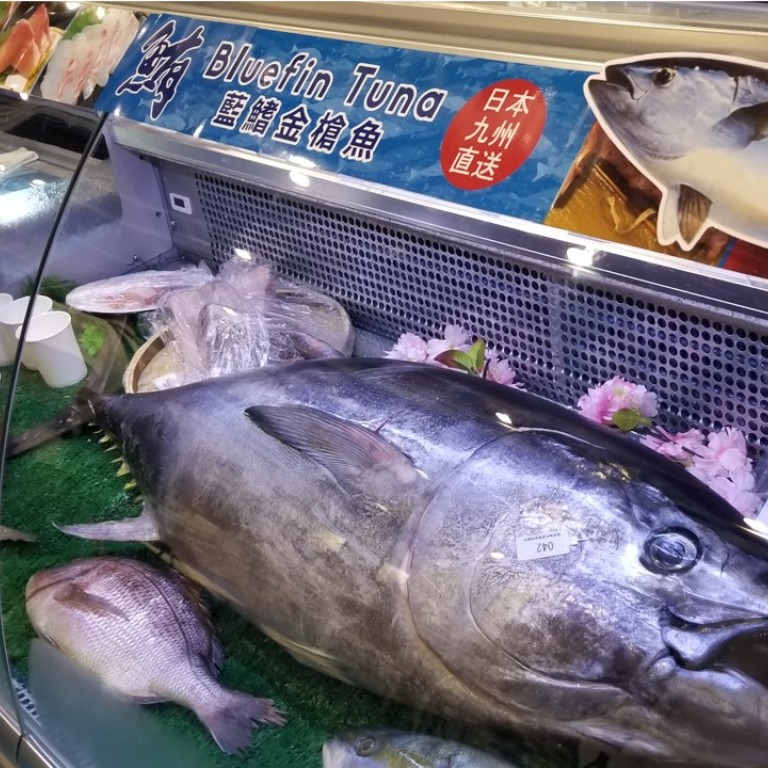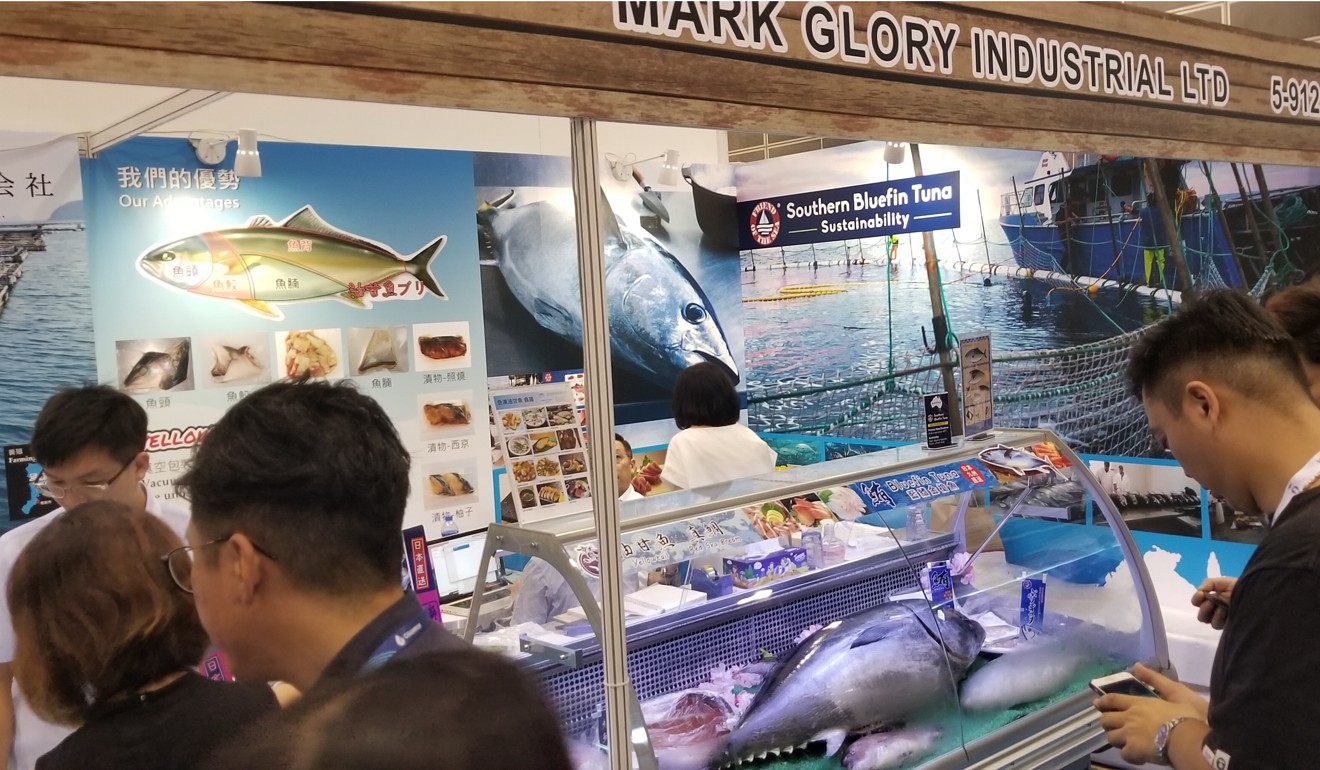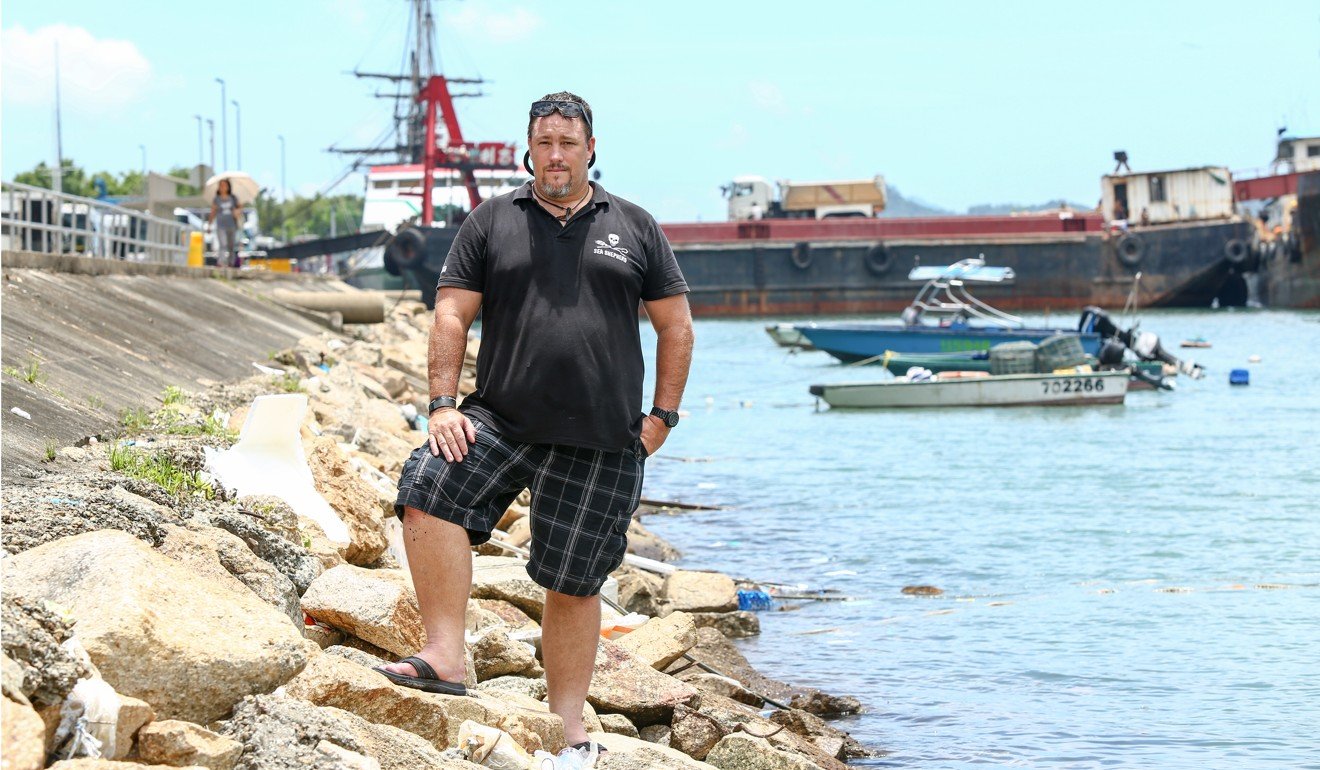
Sale of bluefin tuna that’s critically endangered at Hong Kong expo prompts criticism of organisers
Seafood Expo Asia organisers say it’s up to exhibitors to meet industry standards. Sea Shepherd Hong Kong’s Gary Stokes says the organisers should take responsibility
A seafood expo in Hong Kong is under fire from an environmental group for selling a critically endangered species of tuna.
Non-profit Sea Shepherd Hong Kong said southern bluefin tuna was on sale at one vendor at the Seafood Expo Asia at the Hong Kong Convention and Exhibition Centre in Wan Chai.
The species is listed as critically endangered on the IUCN Red List of Threatened Species, the world’s most comprehensive inventory of the global conservation status of biological species.
Sea Shepherd Hong Kong spokesman Gary Stokes said while the seller is not breaking any law, as the IUCN’s list is not legally binding, it was irresponsible of expo organisers to allow a critically endangered species to be sold at a trade show.

Expo organisers say it is the responsibility of exhibiting companies to meet industry standards.
The response given from the organiser this year, saying they have no control over what vendors sell is ridiculous and irresponsible … The organisers cannot shrug off their responsibility and just take the vendor fees
“As an organiser, our goal is to provide a market platform that connects suppliers and buyers of seafood,” says Christine Pedersen, marketing director of the expo organiser, Seafood Group Diversified Communications. “With thousands of seafood products on display from 34 countries, sustainable practices are increasingly evident and continue to grow in importance. It is up to exhibiting companies to meet industry standards,” she says.
Stokes says organisers must have guidelines in place for vendors, “otherwise there is nothing to stop them selling all sorts of endangered species”.
“At the Seafood Expo 2011 we raised the alarm that a vendor was selling bluefin tuna, an IUCN endangered species. The organiser had the vendor remove the product immediately,” he says.

“The response given from the organiser this year, saying they have no control over what vendors sell is ridiculous and irresponsible. … The organisers cannot shrug off their responsibility and just take the vendor fees.”
Southern bluefin tuna stocks are declining as a result of overfishing, made worse by catches of juveniles that have not had a chance to spawn.
Based on spawning stock data, the International Union for the Conservation of Nature estimates the species’ population has declined by between 19 per cent and 33 per cent in the past 22 years.
Stokes says there was also confusion over where the southern bluefin tuna on sale at the expo was sourced from.
“Signs at the vendor say the tuna is from Australia, while a staff member at the vendor says the juvenile tuna is from a farm in Japan,” says Stokes, who visited the expo on Wednesday.
Stokes says juvenile bluefins are caught in the wild before they have a chance to spawn, and raised in sea pens or farms. That only made labels claiming fish is sustainably sourced more confusing, he said.
The expo, now in its ninth year, attracted thousands of buyers and suppliers of fresh and frozen seafood products, equipment and services from across the globe. Vendors from around a dozen countries showcased seafood at the three-day event, which ended on Thursday.
It also attracted chefs from around the world.
“Chefs are trying to do the right thing and source seafood in a responsible way. They are trying to take sustainable steps, but this misleading information does not help,” says Stokes.
Adult bluefins can weigh more than 450kg (1,000lbs) and migrate thousands of kilometres. They are prized for sushi and sashimi.
As the eighth-biggest consumer of seafood in the world, Hong Kong plays a vital role in driving the sustainable trade and consumption of seafood.
In December, 2017, ChooseRightToday.org, a platform that educates consumers about sustainable seafood, released a survey of Hong Kong wet markets that found 17 species of live reef fish listed by the IUCN as threatened, endangered or vulnerable were being sold.
The survey was conducted from January to June last year at two wet markets – Tai Po Market and Yeung Uk Road Market in Tsuen Wan. It found seven threatened species, five vulnerable species, and two endangered species, including groupers, a wrasse species and a shark.

